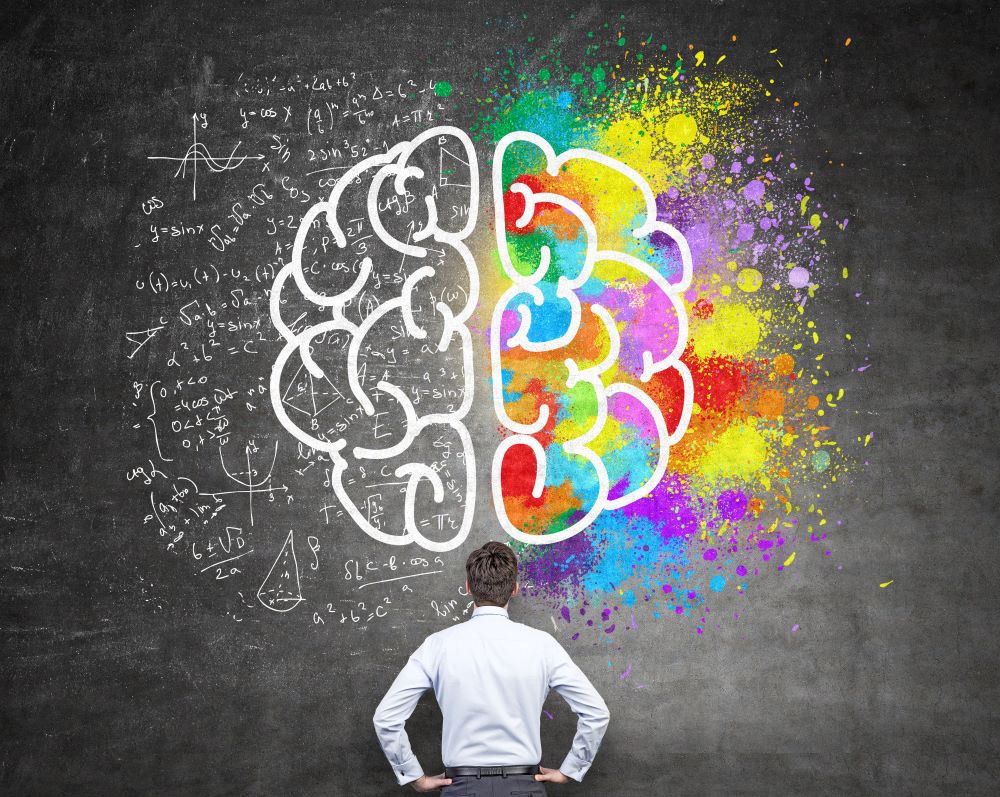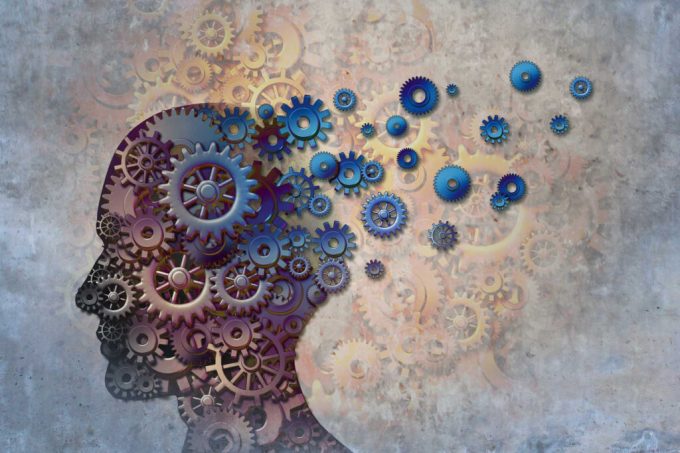
What Is Emotional Intelligence?
Emotional intelligence is the ability to understand and manage your emotions, as well as recognize and influence the emotions of those around you. The term was first coined in 1990 by researchers John Mayer and Peter Salovey but was later popularized by psychologist Daniel Goleman.
More than a decade ago, Goleman highlighted the importance of emotional intelligence in leadership, telling the Harvard Business Review, “The most effective leaders are all alike in one crucial way: They all have a high degree of what has come to be known as emotional intelligence. It’s not that IQ and technical skills are irrelevant. They do matter, but…they are the entry-level requirements for executive positions.”
Over the years, emotional intelligence—also known as EQ—has evolved into a must-have skill. Research by EQ provider TalentSmart shows that it’s the strongest predictor of performance, further illustrating why emotional intelligence is important. Employees with high emotional intelligence are more likely to stay calm under pressure, resolve conflict effectively, and respond to co-workers with empathy.

Why is emotional intelligence important?
Emotional intelligence can help you stay calm and collected under pressure, manage awkward moments with grace and relate to just about anyone you meet.
Why? Because the higher your emotional intelligence, the better you are at understanding your feelings and the feelings of people around you. This can help you relate to people better, be more empathetic and remain grounded even amid difficult times.
“The better we are at understanding and labeling our own emotions and why we may feel a certain way, the better we can gain insight into how other people might feel,” Dr. Tworek says. “It also gives us the insight to ask questions, rather than just assuming that each person might feel the exact same way that we feel.”
In the 2006 movie The Holiday, Kate Winslet’s character shouts, in a moment of epiphany, “You’re supposed to be the leading lady of your own life, for god’s sake!” But here’s the thing: Everyone else is the main character of their own life, too.
Each of us approaches the world through our own unique lens, bringing a different combination of background, experiences, personality and emotions. That lens informs everything from the opinions we hold to the way we react in certain scenarios, and it can often be difficult — if not seemingly impossible — to understand how anyone else could see things differently than we do.
Emotional intelligence helps you see beyond your own lens to understand how other people might be feeling, based on wherever they’re coming from.

How to use Emotional Intelligence
Emotional intelligence can be used in many different ways in your daily life. Some different ways to practice emotional intelligence include:
- Being able to accept criticism and responsibility
- Being able to move on after making a mistake
- Being able to say no when you need to
- Being able to share your feelings with others
- Being able to solve problems in ways that work for everyone
- Having empathy for other people
- Having great listening skills
- Knowing why you do the things you do
- Not being judgemental of others
Emotional intelligence is essential for good interpersonal communication. Some experts believe that this ability is more important in determining life success than IQ alone. Fortunately, there are things that you can do to strengthen your own social and emotional intelligence.
Understanding emotions can be the key to better relationships, improved well-being, and stronger communication skills.

How Do I Know If I’m Emotionally Intelligent?
Some key signs and examples of emotional intelligence include:1
- An ability to identify and describe what people are feeling
- An awareness of personal strengths and limitations
- Self-confidence and self-acceptance
- The ability to let go of mistakes
- An ability to accept and embrace change
- A strong sense of curiosity, particularly about other people
- Feelings of empathy and concern for others
- Showing sensitivity to the feelings of other people
- Accepting responsibility for mistakes
- The ability to manage emotions in difficult situations

How to Identify a Lack of Emotional Intelligence
A lack of emotional intelligence skills often results in workplace conflicts and misunderstandings. This dynamic often stems from an inability to recognize or comprehend emotions.
One of the most common indicators of low emotional intelligence is difficulty managing and expressing emotions. You might struggle with acknowledging colleagues’ concerns appropriately or wrestle with active listening.
Consider the relationships you have with your co-workers. Ask yourself:
- Are your conversations strained?
- Do you repeatedly blame others when projects don’t go as planned?
- Are you prone to outbursts?
These are all signs of a lack of emotional intelligence.
It’s important to cultivate social skills by understanding and practicing empathy and the core components of emotional intelligence.

What Are the 4 Components of Emotional Intelligence?
Researchers suggest that there are four different levels of emotional intelligence including emotional perception, the ability to reason using emotions, the ability to understand emotions, and the ability to manage emotions.
- Perceiving emotions: The first step in understanding emotions is to perceive them accurately. In many cases, this might involve understanding nonverbal signals such as body language and facial expressions.
- Reasoning with emotions: The next step involves using emotions to promote thinking and cognitive activity. Emotions help prioritize what we pay attention and react to; we respond emotionally to things that garner our attention.
- Understanding emotions:The emotions that we perceive can carry a wide variety of meanings. If someone is expressing angry emotions, the observer must interpret the cause of the person’s anger and what it could mean. For example, if your boss is acting angry, it might mean that they are dissatisfied with your work, or it could be because they got a speeding ticket on their way to work that morning or that they’ve been fighting with their partner.
- Managing emotions: The ability to manage emotions effectively is a crucial part of emotional intelligence and the highest level. Regulating emotions and responding appropriately as well as responding to the emotions of others are all important aspects of emotional management.
The four branches of this model are arranged by complexity with the more basic processes at the lower levels and the more advanced processes at the higher levels. For example, the lowest levels involve perceiving and expressing emotion, while higher levels require greater conscious involvement and involve regulating emotions.

Emotional intelligence affects
Your performance at school or work. High emotional intelligence can help you navigate the social complexities of the workplace, lead and motivate others, and excel in your career. In fact, when it comes to gauging important job candidates, many companies now rate emotional intelligence as important as technical ability and employ EQ testing before hiring.
Your physical health. If you’re unable to manage your emotions, you are probably not managing your stress either. This can lead to serious health problems. Uncontrolled stress raises blood pressure, suppresses the immune system, increases the risk of heart attacks and strokes, contributes to infertility, and speeds up the aging process. The first step to improving emotional intelligence is to learn how to manage stress.
Your mental health. Uncontrolled emotions and stress can also impact your mental health, making you vulnerable to anxiety and depression. If you are unable to understand, get comfortable with, or manage your emotions, you’ll also struggle to form strong relationships. This in turn can leave you feeling lonely and isolated and further exacerbate any mental health problems.
Your relationships. By understanding your emotions and how to control them, you’re better able to express how you feel and understand how others are feeling. This allows you to communicate more effectively and forge stronger relationships, both at work and in your personal life.
Your social intelligence. Being in tune with your emotions serves a social purpose, connecting you to other people and the world around you. Social intelligence enables you to recognize friend from foe, measure another person’s interest in you, reduce stress, balance your nervous system through social communication, and feel loved and happy.

How to improve your emotional intelligence
While it can take time and practice, emotional intelligence can be improved. Try these tips:
Practice awareness
Take time to pay special attention to interactions around you. Listen to what others are telling you through their words and non-verbal cues. Observing the way people use and react to emotion can help you fine-tune your ability to empathize.
Look inward
While observing others and their interactions can be helpful, monitoring your own emotions and responses can also increase your emotional awareness. Consider how your emotions influence your decisions and behaviors. For example, you might notice that when you feel overwhelmed, you tend to be short-tempered with others. Or when you’re feeling sad or disappointed, you might notice your shoulders slouch or your head points downward.
React and respond to others
Practice addressing and working with others based on the way you observe what they’re feeling. When deciding how you should react, consider how you’d like to be treated under the same circumstances. For example, while you might enjoy talking about your emotions with others when you feel anxious or stressed, others might prefer to process their emotions alone. If you’re unsure, ask others about their preference in that moment.
Learn from your mistakes
If you find that you misinterpreted a certain emotion or the way you handled someone’s feelings didn’t work well, learn from your mistakes and treat the situation differently the next time.Building relationships through empathy, communication and active listening can help you be a highly valued team member at an organization. Displaying examples of ways that you have connected with others using emotional intelligence in your cover letter and during interviews can also help you be a competitive candidate.
How to measure or test emotional intelligence
Dr. Goleman and other social scientists have promoted the concept of an emotional intelligence quotient (EQ) test to serve as a counterpart to more traditional intelligence quotient (IQ) tests. While a traditional IQ test seeks to evaluate an individual’s ability to learn new information, an emotional intelligence test seeks to evaluate an individual’s capacity to deal successfully with others. To that end, EQ test questions focus on assessing soft skills, such as self-awareness, social awareness, relationship management and empathy.
Although Goleman’s theories have been influential, they have not gone without criticism. Several of his peers have claimed that, among other things, Dr. Goleman’s research has not been sufficiently rigorous.
Research has also found that emotionally intelligent people can use their skills for personal gain. A research team led by University College London professor Martin Kilduff, for example, found that emotional intelligence helps people disguise their real emotions to benefit their own agenda. Another study led by the University of Toronto psychologist Stéphane Côté found that people with high emotional intelligence used their skills to manipulate others in the workplace.
Most critics agree, however, that the concept of emotional intelligence is valid because human intellect is complex, and it’s simply not possible for one type of emotional intelligence test to accurately assess a person’s ability to be successful.

Emotional intelligence is a vital skill that empowers individuals to understand and manage their own emotions while effectively navigating relationships with others. By developing emotional intelligence, we can improve our self-awareness, build stronger connections and enhance our overall well-being. Remember, emotional intelligence is a journey and with consistent effort and practice, we can cultivate this essential skillset and thrive in both our personal and professional lives.














Leave a comment